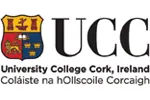We're moving! This site will be relocating to goingto.university in 2026. Please update your bookmarks to the new address.


| The award | How you will study | Study duration | Course start | Domestic course fees | International course fees |
|---|---|---|---|---|---|
| MSc | Full-time, Part-time | 1 year | September | - | - |
Overview
Government affects our day-to-day lives. It affects the food we eat, the healthcare we receive and the taxes we pay. Modern-day governance occurs at many levels: local, regional, national, European and international.
The MSc in Government helps you understand contemporary government governance. In doing so it examines issues such as developments in democratic theory, regulatory reform, governance and international relations. It also examines contemporary policy debates at the local, national, European and international levels, looking at political reform in the Irish context, the changing dynamics of European governance as well as the challenges faced by democracy and the protection/advancement of human rights in the twenty-first century.
The MSc in Government is suitable for graduates of social science, arts, commerce, law or related disciplines.
You can take this course in one year full-time or in two years part-time.
Video about this course
Course Details
The course combines six taught modules with a 15,000–20,000 word research dissertation.
Modules (60 credits)
GV6102 Political Science Research Methods (10 credits)
GV6103 Re-imagining Democratic Politics in a Changing World (10 credits)
GV6113Governance and policy processes in the European Union (10 credits)
GV6114 Changing Dynamics of Governance (10 credits)
GV6115 European Security (10 credits)
GV6118 Political Participation and Mobilisation (10 credits)
All modules are examined through continuous assessment.
The course will enable you to develop your research and analytical skills in the areas of government, political science and public policy. It will also give you a number of other skills, including:
The course will prepare you for positions in government, international organisations, the private, community and voluntary sectors and PhD research. Our graduates have found employment as parliamentary researchers, journalists, analysts in the banking and IT industries, press officers, teachers and some have gone on to PhD research.
Further details on the content and modules are available on the Postgraduate College Calendar
Fact File
Course Code: CKL07 Full-time & Part-time
Course Title: Government
College: Business and Law
Duration: 1 year Full-time; 2 years Part-time
Teaching Mode: Full-time, Part-Time
The part-time option will be taught during weekday working hours over 2 years.
Qualifications: MSc
NFQ Level: Level 9
Costs: 2017/2018: Irish/EU Fee EUR 5,530 full-time. The part-time course fee is half the full-time fee in the particular year of study.
2016 Entry Requirements: Minimum 2.2 Honours Primary Degree or an equivalent academic or professional qualification)in specific subject areas (see Detailed Entry Requirements).
Closing Date: See details in application procedure section below
Next Intake: 11 September 2017
Course Practicalities
Lectures for full-time students of the MSc Government take place all day Thursday and Friday. The course is designed in this way to provide students with ample time to read the materials discussed in advance of the seminar style classes and to prepare the presentations that are part of the ongoing continuing assessment.
This format also facilitates part-time students.
In year 1, part-time students take the following modules:
GV6113 Governance and policy processes in the European Union
GV6114 The Changing Dynamics of Governance
GV6115 European Security
GV6118 Political Participation and Mobilisation
These modules take place on Fridays in semesters 1 and 2.
In year 2 part-time students take:
GV6102 Political Science Research Methods
GV6103 Re-imagining Democratic Politics in a Changing World
GV6106 Dissertation
These modules are timetabled for Thursdays in semesters 1 and 2.
In recent years, students on the MSc Government have travelled on a field trip to PSAI (Political Science Association of Ireland) public events in Dublin.
Assessment
All of the modules on this course are examined through continuous assessment. A variety of assessment methods are used. Examples include:
Application Procedure
Application for this programme is on-line at www.pac.ie/ucc. Places on this programme are offered in rounds. The closing dates for each round can be found here. For full details of the application procedure click How to Apply.
Please note you will be required to answer specific additional/supplementary questions as part of the online applications process for this programme. A copy of these additional/supplementary questions are available to view here: Supplementary Form CKL07 (27kB)
All required documentation must be either uploaded to your online application, or sent in hard copy to The Postgraduate Applications Centre, 1, Courthouse Square, Galway, immediately after an application is made.
2016 Entry Requirements: Minimum 2.2 Honours Primary Degree or an equivalent academic or professional qualification)in specific subject areas (see Detailed Entry Requirements).
Closing Date: See details in application procedure section below
Next Intake: 11 September 2017
Contact University College Cork (UCC) to find course entry requirements.
Below are some suggested courses at other providers that you may also be interested in:
Bachelor program “Operational Manager in International Hospitality” Bachelor Degree
Vatel Bordeaux
Find out moreBachelor in Transportation Design Bachelor Degree
IAAD. - Institute of Applied Art and Design
Find out moreIf you do not meet the entry requirements for this course then consider one of these postgraduate preparation courses from another institution:
Graduate Diploma of Engineering (Civil: Structural)
Engineering Institute of Technology
Find out moreGraduate Diploma of Professional Engineering (Electrical & Electronic Engineering)
University of Southern Queensland
Find out moreThere are 338 other courses listed from University College Cork (UCC). A selection of these are displayed below:
Join the StudyLink email list and never miss a chance to turn your study abroad dreams into reality!

Find out more about studying in Ireland